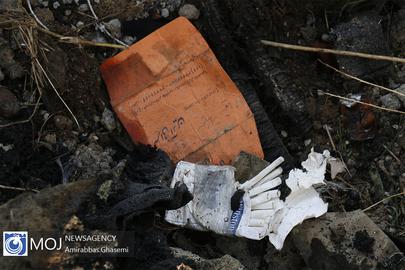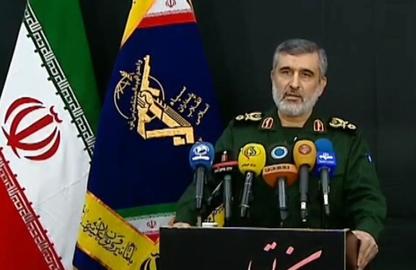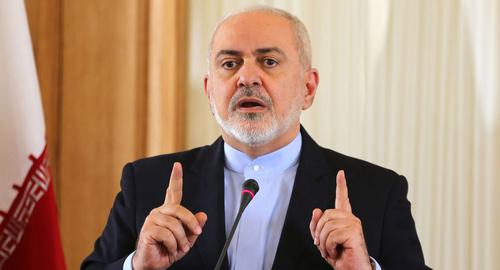A hundred days have passed since Ukraine Airlines flight PS752 en route from Tehran to Kiev was brought down by two missiles fired by the Revolutionary Guards, killing all 176 people on board.
Initially, Islamic Republic authorities denied it had anything do to with the tragedy, which took place at 6:18am Tehran time on January 8, 2020. For three days it put down the cause of the accident to a "technical defect."
After follow-ups from the Ukrainian Government and the Prime Minister of Canada, which had many citizens and residents of Iranian origin on board, Iran's military admitted responsibility, saying the Revolutionary Guards had fired two air defense missiles, and blaming the incident on "unintentional human error."
The event is unprecedented. No military force in history has shot down a plane carrying its citizens over its own territory. When the authorities admitted responsibility, they also accepted the international consequences of the plane crash, including paying compensation and damages to families who lost loved ones in the accident and the prosecution of the perpetrators in Iranian courts.
Iranian officials say they have arrested and prosecuted the individual responsible for shooting down the plane. However, 100 days after the crash, valuable information on the plane's two black boxes has not been recovered, and the Islamic Republic has refused to deliver it to a country able to extract the information — despite earlier promises to deliver the flight recorders to Ukrainian authorities.
But prior to that promise, Iranian authorities had said it was justified in not delivering the boxes because it was going to extract the necessary information. Then Foreign Minister Mohammad Javad Zarif said that Iran was unable to extract the information from the black boxes — one of which stores the aircraft's performance information and the other of which holds recordings of conversations between the pilots and flight crew — but that it was unwilling to hand them over to another country. Now officials say the coronavirus outbreak is stalling the matter. But why? What can be more important than addressing the issue of why the Revolutionary Guards shot down the plane, whether it was an accident or intentional? What else is the Islamic Republic trying to hide?
A Scapegoat?
It has widely been touted that the most likely cause of the plane crash was an error in the Guards’ defense system, which led the missile operator to identify it as a US "cruise missile.” It was thought the operator sought confirmation about the aircraft from colleagues, but in the absence of it, he was forced to take the decision on his own to shoot the missiles at the plane.
The Islamic Republic’s refusal to hand over the black boxes has prompted speculation that the tragedy might not be the result of human error, but actually a kind of "systematic intention,” and that the operator and his alleged lone decision are being set up as scapegoats to cover up a series of serious structural errors.
Before the crash, the plane used for Flight 752 had been scheduled to fly the Tehran-Kiev route least three times a week. The serial number of the aircraft and its flight specifications had undoubtedly been registered with the Iranian Air Defense System — meaning it should have been protected from any Iranian attack. Otherwise, the plane, which arrived in Iran's airspace hours before the crash, would not have been able to enter the airspace of the Islamic Republic.
Brigadier Amir Ali Hajizadeh, commander of Revolutionary Guards aerospace, has explained how the plane was shot down by forces under his command, saying that the operator had contacted the integrated defense system in an effort to establish whether he should shoot down the plane or not, but that he was unable to get through due to congestion in the communications system — and so then took the decision on his own to shoot.
But whether or not this series of events took place cannot be confirmed because Iranian authorities have not made relevant information available to either the public or experts. What is clear is that there are significant questions over the veracity of Iranian officials’ claims, and unanswered questions about the prevailing narrative.
Why, when the Guards’ aerospace commander believed that a US strike was imminent and that aircraft and passengers could be in danger, did he not block all passenger flights? Why did he not, at the very least, inform airlines about the potential dangers? Such failure to inform directly contravenes aviation regulations set out by the International Civil Aviation Organization (ICAO) and its Chicago Convention, and which determines conduct and safety standards to be upheld to promote cooperation between nations —clearly putting the lives of Iranian and other citizens at risk.
The Guards’ aerospace commander said he had rejected proposals to close Iranian airspace, but, if he thought there was danger of an attack, why did he take this decision? It’s likely that Iranian authorities did not want to make it any easier or provide further incentives for the United States to attack by clearing Iranian airspace and creating an unusual situation for the airlines.
Iranian authorities probably wanted to ensure the normal flow of passenger flights over the country's skies, creating a human shield against a possible US attack because the lives of air passengers were at risk and the United States would be less likely to launch a missile attack on Iran in that scenario — knowing that it would be risking human lives to a greater extent if it took such action.
A Criminal Matter
If the information stored on the plane’s black boxes confirms or suggests the probability of these hypotheses, the Islamic Republic of Iran can expect far more serious consequences than having to pay compensation to the airline and the people who lost family members in the crash. The incident will become a criminal matter and not simply one concerning the Iranian government's international responsibility, and the probability of prosecutions for those responsible for the tragedy will increase.
A similar situation occurred with Malaysia Airlines Boeing 777, which crashed over Ukraine while en route from Amsterdam in the Netherlands to Kuala Lumpur in Malaysia on July 17, 2014. That deadly attack has been attributed to Russia, and five years after the crash, three Russian citizens and one Ukrainian citizen have been charged with firing a rocket in eastern Ukraine, shooting down the plane and killing all 298 passengers and crew. The four main defendants are currently on trial in absentia in the Netherlands.
In a similar case from 1988, Libyan nationals and the Libyan government, then led by Muammar Gaddafi, were accused of bombing a US plane in December 1988 over the village of Lockerbie in Scotland. There had been unconfirmed speculation that the Islamic Republic of Iran carried out the attack in retaliation for the downing of an Iranian passenger plane over the Persian Gulf. Libya finally claimed responsibility for the bombing after years of pressure from sanctions and following prosecution of its citizens.
Pursuing the truth and seeking justice pertaining to air disasters is complex and time-consuming. Identifying and meting out punishment for human error is complicated enough. If there is any possibility of disasters being intentional, then this commitment to expose the truth will be even more painstaking, however long it takes. Those families who paid the highest price will not forget, and they, often backed by their governments, will not rest until those responsible face justice.
visit the accountability section
In this section of Iran Wire, you can contact the officials and launch your campaign for various problems



























comments